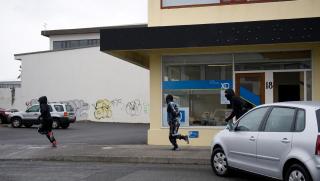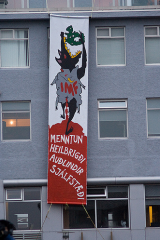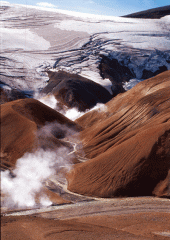'Economic Collapse'
Tag Archive
Jan 28 2011
2 Comments
Corruption, Democracy deficit, Economic Collapse, Economics, Saving Iceland, SIC Report
Magnús Sveinn Helgason
The Reykjavík Grapevine
January 2011
While history—meaning: ‘the past’—does not change, history—meaning: ‘the narration of past events’—does in fact change. This is because we view history through the lens of the present. As events unfold, the meaning and significance of the past changes. And because our view of the past changes we constantly need to change our history textbooks.
So, it is pretty hard to predict how any event, let alone a whole decade, will be remembered. Because we do not know what the future holds, or what academic fads will reign among future historians, it is exceedingly difficult to say with any certainty how future historians will judge this first decade of the 21st century. Still, even if we lack the necessary hindsight of history, we can make some pretty good educated guesses. Read More
Oct 26 2010
Corruption, Democracy deficit, Economic Collapse, Repression, RVK9, Saving Iceland
This video shows the founder of Saving Iceland at the London Anarchist Bookfair, which he attended in order to bring worldwide focus on the case of the Reykjavík Nine and call for international solidarity for them.
A brand new solidarity brochure about the case of the RVK-9 was distributed at the Bookfair as well.
Watch the video below and download the brochure here. Be sure to visit the support site of the Reykjavík Nine at rvk9.org.
Read More
Aug 12 2010
1 Comment
Alterra Power/Magma Energy, Economic Collapse, Economics, Geysir Green Energy, H.S. Orka, Pan American Silver, Privatization
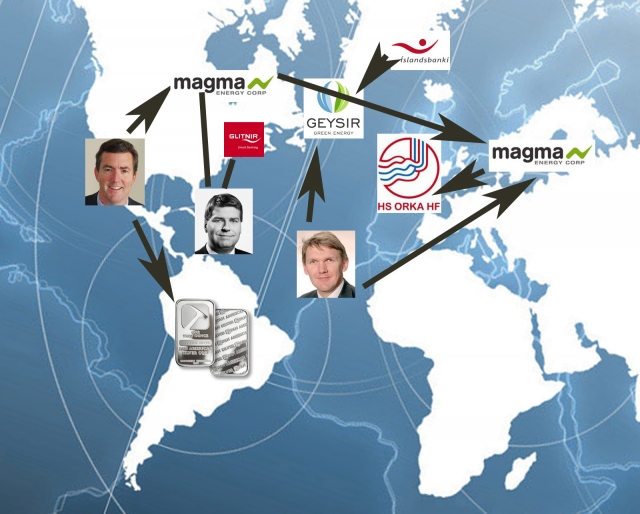 It has hardly escaped the attention of anyone living in Iceland of late, that the Canadian geothermal company, Magma Energy, recently bought Geysir Green Energy´s (another geothermal energy company) stock in HS Orka (southwest-peninsula power company), making Magma a majority stockholder with 98,5% partnership. Magma´s purchase of GGE´s stock comes as no surprise whereas it´s been clear from the onset that Magma intended to claim majority ownership over HS Orka.
It has hardly escaped the attention of anyone living in Iceland of late, that the Canadian geothermal company, Magma Energy, recently bought Geysir Green Energy´s (another geothermal energy company) stock in HS Orka (southwest-peninsula power company), making Magma a majority stockholder with 98,5% partnership. Magma´s purchase of GGE´s stock comes as no surprise whereas it´s been clear from the onset that Magma intended to claim majority ownership over HS Orka.
Small and Cute – For Concerned Icelanders
Ross Beaty, CEO of Magma Energy, has repeatedly been asked if he´s exploiting Iceland´s economic turmoil to claim control over the country´s resources, which he has always denied. On the 26th of August last year when he appeared on Kastljós, an ‘after-news special’ program on RUV (Icelandic National Broadcasting Association), Beaty also denied being interested in more power plants. “No, we´re focusing on this now. This is a small nation and it doesn´t serve our purposes to become to big”.
Because of exactly these comments, the announcement that HS Orka had sought permission to do test drilling in Hrunamannaafrétti, from Flúðir and into Kerlingarfjöll in search of geothermal areas garnered a considerate ammount of attention. Keep in mind that a research permission is not a permission to raise a power plant, but still, just drilling one test hole can cause a considerate ammount of damage on pristine land. Then, just a few days later, RUV news reported that Suðurorka, an energy company owned by HS Orka and The Icelandic Power Company (a consulting company), has plans of building a dam in Skaftárhreppur, the 150 MW Búlandsdam, over the next four years. HS Orka seems therefore to be on the warpath.
Read More
Jun 30 2010
1 Comment
Corruption, Economic Collapse, RVK9
Iceland’s first post-collapse trial continued yesterday. Nine participants of the ‘Cutlery Uprising’ face charges of ‘endangering the autonomy of parliament.’
In relation to the events surrounding Iceland’s economic collapse of 2008, nine Icelandic citizens stood in court yesterday. Each face up to sixteen years imprisonment. Yet they weren’t the politicians, bankers and businessmen who landed the country with a crippling €50 billion debt. Quite the opposite, actually.
The Reykjavik Nine (RVK9) are a gaggle of Icelanders who legally entered their Parliament to demand their politicians resign; one month and half before their government stood down. They each face charges of endangering parliament’s ‘autonomy’.
In April this year a parliamentary report was published which singled out the ‘gross negligence’ of seven high-power individuals responsible for crippling the islands economy. Said Johanna Sigurdardottir, the countries new prime minister, ‘The private banks failed, the supervisory system failed, the politics failed, the administration failed, the media failed, and the ideology of an unregulated free market utterly failed.’
Ironically, the counter-establishment protesters are the ones who have been charged. Read More
Jun 29 2010
3 Comments
Corruption, Economic Collapse, Media bias, Ólafur Páll Sigurdsson, Repression, RVK9, Saving Iceland, SIC Report
Ólafur Páll Sigurdsson
Environmental network Saving Iceland declares full solidarity with the Reykjavik Nine defendants (RVK9), who face between one and sixteen years in prison for exercising their democratic right to peacefully protest against a disgraced parliament, on 8 December 2008.
These nine people have been picked out of the thousands whose protests brought down the previous government, whose corruption and ineptitude was responsible for the historical crisis Icelandic society is still being torn up by. This same government has now been confirmed by the Special Investigation Committee report (SIC – an apt acronym) as instrumental in the abuse that lead to the complete crash of the Icelandic economy; and as a major force in the severe corruption, democracy deficit and ethical crisis which have since emerged as the underlying reasons for the total failure of Icelandic democracy.
Criminalizing political opponents, even those who use non-violent civil disobedience, is an old diversion tactic used by states worldwide. This act of political repression is in glaring contradiction to the sanctimonious declarations of ‘shouldering responsibility’ and ‘taking heed of lessons’ paid by the parties responsible for the crisis. Icelanders should take seriously the systematic abuse of power which has been uncovered in the Icelandic establishment. Read More
Jun 09 2010
1 Comment
Corruption, Economic Collapse, Heavy Industry, Róstur, SIC Report
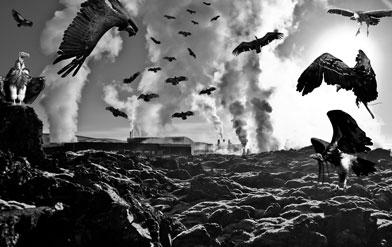 This article originally appeared in the June issue of the independent newsmagasine Róstur.
This article originally appeared in the June issue of the independent newsmagasine Róstur.
The Whitewash report, or “Investigative report of the Special Investigation Commission” made by the Special Investigation Comission (SIC) on orders from Alþingi (The Icelandic Parliament) under the pretence of investigating “the prelude to and cause of the crash of the Icelandic banks and related events”, which also is the subtitle of the report, has been disected by the media and heavily discussed on public forums for the last couple of months. The major medias and other groups of interest have been busy covering it chapter by chapter, drawing out the main conclusions of each part into few sentances to make it easily accessable to their readers. But not all of the chapters are getting equal coverage. Most of the focus has been on selected chapters relating to indictable actions and negligence on behalf of government and bank officials in the run-up to the collapse, the processes of the privatisation policy, especially towards the banks, and the loan books and other financial documentation revealed by the report. In that way, the major medias and other public opinionmakers are, like always, backing up the authorities in their defence of the current political system. All coverage about the report is directed towards these few selected parts, scapegoating a few people from the pre-crash financial sector along with expendable and retired politicians to spare the rest. This has resulted in a black-out of all discussion about the most important and revealing parts of the report, namely the parts about the economic impact of the industrialisation policy. Read More
Nov 27 2009
Economic Collapse, Economics, Energy Prices, Heavy Industry, Kárahnjúkar, Landsvirkjun
By Indriði H. Þorláksson – Economist
The economic effects of heavy industry must take into account both short and long term economic policies.
Statements put forth without reasoning sometimes obtain more significance than they merit. Two such statements that are held aloft about the building of energy plants and heavy industry are particularly dangerous.
On the one hand that they are necessary and that they might even be the way out of the crisis and on the other that the future of the Icelandic economic system is best insured by utilizing energy resources and with heavy industry. One looks to the short term and the other to the long term but both are questionable, probably wrong and even dangerous.
The economic impact of heavy industry must take into account both short and long term economic policies, In the short term, say 3-5 years the goal is to restart the economy. In the long term the goal is to promote growth in the economic system to provide citizens with the good things in life. To do so the economy has to provide the highest augmented value to the nation for its work, capital and resources.
Read More
Apr 25 2009
Actions, ALCOA, Century Aluminum, Corruption, Democracy deficit, Economic Collapse, Economics, Greenwash, Kárahnjúkar, Landsvirkjun, Media bias, Ólafur Páll Sigurdsson, Rio Tinto Alcan, Saving Iceland
Olafur Pall Sigurdsson
Saving Iceland applauds the symbolic hits that the three pro-heavy industry political parties were dealt in the form of liberal splashes of green skyr (traditional Icelandic dairy product) on Monday.
According to Saving Iceland’s sources, three different groups, not just one, like the corporate media have claimed, did these actions almost simultaneously. Saving Iceland has also been informed that the activists were all Icelandic. It appears that this is a powerful group of activists, fighting the heavy industrialization of Iceland. Saving Iceland declares full support with the group.
The forces that stand behind Sjálfstæðisflokkurinn (Conservatives), Framsóknarflokkurinn (Right-wing opportunists) and Samfylkingin (New Labour equivalents), are guilty of what is tantamount to high treason with their heavy industry policy. Judging from their election propaganda, there is no sign that the parties have been willing to learn anything from the economic collapse about the expansion effects on the economy by heavy industry.
At the same time as these parties’ policy of uncontrollable greed has been pursued with the consequences of immense irreversible destruction of the country’s unique nature, this policy has just as much harmed Icelandic society as a whole. Read More
Apr 07 2009
ALCOA, Alterra Power/Magma Energy, Andri Snaer Magnason, Century Aluminum, Corruption, Democracy deficit, Economic Collapse, Economics, Energy Prices, Geothermal Energy, Jaap Krater, Kárahnjúkar, Landsvirkjun, Reykjavik Energy, Rio Tinto Alcan, Saving Iceland
John Perkins, the author of
The Confessions of an Economic Hitman, is currently in Iceland. Perkins is here to be at the premier screening of
The Dreamland, a documentary based on Andri Snær Magnason’s book, also titled
The Dreamland. Last Sunday, Perkins was interviewed in a political TV show on RÚV (the state television station) where he spoke about the threat of Icelandic resources being sold to foreign corporations and advised Icelandic authorities not to collaborate with the International Monetary Fund (IMF).
Perkins used to work for the U.S. National Security Agency and his job included “to convince poor countries to accept enormous development loans – and to make sure that such projects were contracted to U.S. companies,” as says on the back cover of his book. Perkins states that Iceland is the first ‘developed’ country in the world to be hit by the ‘Economic Hitmen’, referring to the invasion of the aluminium industry in Iceland. Read More
Feb 09 2009
ALCOA, Bakki, Bechtel, Century Aluminum, Climate Change, Dams, Ecology, Economic Collapse, Energy Prices, Geothermal Energy, Greenwash, Hengill, hydropower, IMF, Kárahnjúkar, Landsvirkjun, Miriam Rose, Reykjavik Energy, Rio Tinto Alcan, Saving Iceland, Þjórsárver
From New Renaissance Magazine
By Miriam Rose
The economic issues currently causing mass demonstrations in Iceland have a less publicised ecological cousin, and one which the IMF has recently identified as part of the economic collapse. In 1995 the Ministry of Industry and Landsvirkjun, the national power company, began to advertise Iceland’s huge hydropower and geothermal energy potential. In a brochure titled “Lowest energy prices!!” they offered the cheapest, most hard working and healthiest labour force in the world, the cleanest air and purest water – as well as the cheapest energy and “a minimum of environmental red tape” to some of the world’s most well known polluting industries and corporations (such as Rio Tinto and Alcoa). This campaigning has led to the development of an ‘Energy Master Plan’ aimed at damming almost all of the major glacial rivers in Iceland, and exploiting all of the geothermal energy, for the power intensive aluminium industry. The loans taken by the Icelandic state to build large scale energy projects, and the minimal payback they have received from the industry, has been a considerable contributing factor to the economic crisis, while at the same time creating a European ecological crisis that is little heard of.
The Largest Wilderness in Europe
I first visited Iceland in 2006 and spent a week with activists from the environmental campaign Saving Iceland, a network of individuals from around Europe and Iceland who decry the fragmentation of Europe’s largest wilderness in favour of heavy industry. From these informed and passionate folk I learned of the 690 MW Kárahnjúkar dam complex being built in the untouched Eastern Central Highlands to power one Alcoa aluminium smelter in a small fishing village called Reydarfjörður. The dams formed the largest hydro-power complex in Europe, and were set to drown 57 km2 of beautiful and virtually unstudied wilderness, the most fertile area in the surrounding highlands. Ultimately it would affect 3% of Iceland’s landmass with soil erosion and river silt deprivation. They also explained how materials in the glacial silt transported to the oceans bonds with atmospheric CO2, sinking carbon. The damming of Iceland’s glacial rivers not only decreases food supply for fish stocks in the North Atlantic, but also negatively impacts oceanic carbon absorption, a significant climatic effect. After taking part in demonstrations at the construction site of the Alcoa smelter (being built by famous Iraq war profiteers Bechtel), I went to see the area for myself. Read More
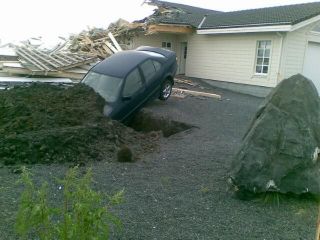
 It has hardly escaped the attention of anyone living in Iceland of late, that the Canadian geothermal company, Magma Energy, recently bought Geysir Green Energy´s (another geothermal energy company) stock in HS Orka (southwest-peninsula power company), making Magma a majority stockholder with 98,5% partnership. Magma´s purchase of GGE´s stock comes as no surprise whereas it´s been clear from the onset that Magma intended to claim majority ownership over HS Orka.
It has hardly escaped the attention of anyone living in Iceland of late, that the Canadian geothermal company, Magma Energy, recently bought Geysir Green Energy´s (another geothermal energy company) stock in HS Orka (southwest-peninsula power company), making Magma a majority stockholder with 98,5% partnership. Magma´s purchase of GGE´s stock comes as no surprise whereas it´s been clear from the onset that Magma intended to claim majority ownership over HS Orka.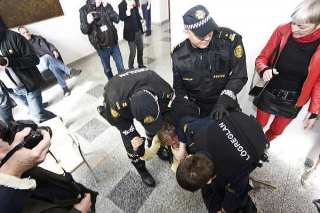
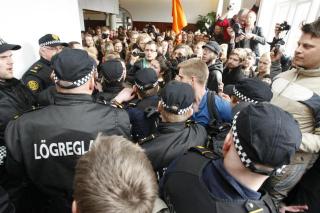
 This article originally appeared in the June issue of the independent newsmagasine
This article originally appeared in the June issue of the independent newsmagasine 
